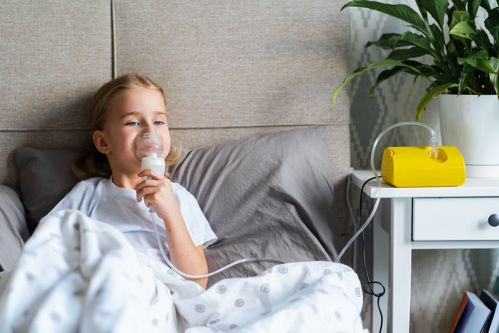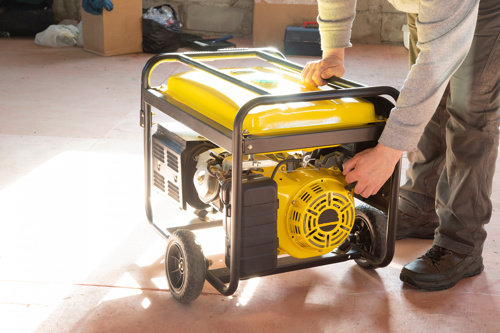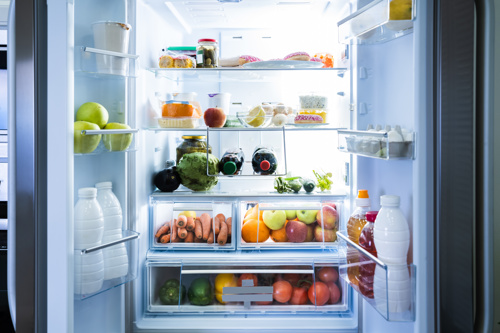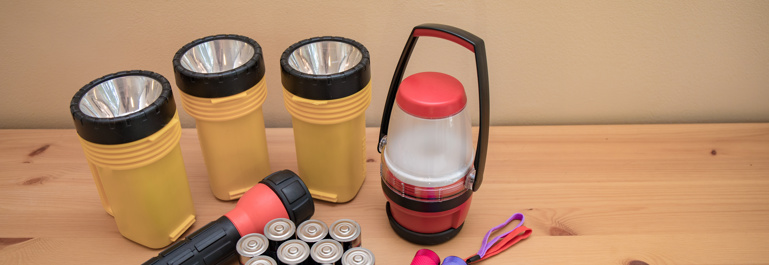Being prepared will help you get through power outages safely. Here's some tips to help you get prepared.
Before: tips for your home
- A wood fire or a gas heater are alternatives to heating your house without electricity
- Extra clothing and blankets are also a good way to keep warm
- Conserve heat in your home by closing doors, windows and curtains
- A torch with spare batteries is the best source of alternative lighting
- Gas-powered camping lanterns or candles can also be used, but never leave these on when you’re not in the room – they are a fire risk
- An outdoor BBQ is a simple way to prepare hot food without using electricity. Make sure you have enough cooking fuel (like gas) on hand
- Remember to keep your fridge and freezer door closed as much as possible. An unopened fridge will keep your food cool for at least 4 hours. A half-full freezer will keep your food chilled for up to 24 hours and a full freezer for up to 48 hours
- Prepare chilly bins with ice bricks or chill packs to keep food cold
- Have a supply of bottled water and long-life items such as milk and canned goods
- If you have pets, don’t forget food for them in your emergency kit
- Keep a supply of detergent, bleach and alcohol-based hand sanitiser
- If you work from home or want to ensure essential household appliances continue to run, you can use a small generator. These can range from a small uninterruptible power supply (UPS) to maintain power to landline phones, to a standby petrol or diesel generator. Here's a list of suppliers
- If you are using a generator, ensure you have plenty of fuel for it
- In some situations, we can provide a generator to schools, early childcare, healthcare, elderly care and veterinary clinics. Find out more
We know some homes and businesses have back-up generators in case if the power goes out unexpectedly during an emergency, such as a severe weather event. It’s important to connect generators correctly so they are safe for both those in the building and anyone who is working on the network to get power restored.
WorkSafe have useful information on how to connect a generator to the wiring of a house or building following an emergency.
Unplanned power outages or power surges (when there's a momentary fluctuation in voltage) can potentially damage electrical equipment or appliances.
- Power could be restored at any time, so switch appliances off at the wall to avoid possible damage when power is restored
- We recommend using a surge protection device to protect appliances and electrical equipment
- Surge protectors can either be plugged in or wired into the installation mains
If you have equipment that is vulnerable to damage by unbalanced or reduced voltage, such a three-phase motors and pumps, we recommend you install protection that will automatically disconnect the appropriate equipment if needed.
Aurora Energy will not accept responsibility for any damage to a customer’s electrical equipment or appliances caused by an unplanned power outage, power surge or unbalanced voltage. We recommend you arrange insurance that covers damage from transient voltages (surges).
- Fibre connections may not work during a power outage, however, a 3G or 4G network connection should
- If your house has a copper phone line connection that plugs into the wall, this will still work without power
- Keep your mobile phone charged. If you have a device that can be charged with a USB cord, use a power bank or car charger as they’re great sources of backup energy.
- If the power outage is due to a serious hazard or emergency, then you may receive an Emergency Mobile Alert from an authorised emergency agency on your mobile phone with information to keep you safe
- To extend the battery life of your device:
- Turn Wi-Fi and Bluetooth off
- Close any apps running in the background
- Hot water cylinders will maintain their temperature for a while so you can still take a shower
- The cylinder will heat up again when the power comes back on
- In most rural areas, electricity is needed to pump water to your home.
- Having an alternative source for fresh water, a non-electric pump or a backup generator can help with access to water within your home
- Contact your house alarm provider to ensure you have a backup battery supply during an outage
- If you have electric doors to your garage or live in an electrically gated area, check you know how to manually override them
- For garages with electric doors, there should be a manual release lever that lets you open the door from the inside
- If you know a planned outage will occur, you may want to park on the street instead of inside a garage with electric doors
|
 |
- Consider purchasing a power bank for your mobile phone/devices
- You can also use your car’s 12v socket/USB port as a charger – but be careful not to run your car battery flat
- A battery-operated radio will keep you informed of the latest news
- You can also listen to your car radio to get the latest news
- In a significant crisis, radio, phone and cell infrastructure can be affected. This means you may not be able to use your phone to call, text or check social media until these services are restored
- Make sure your emergency kit is stocked and you have an emergency plan in place to help get you through
Before: additional tips for your business
|
 |
| If your business relies on perishable foods that need to be chilled, insulated freezer blankets are an option, or look to have an alternative location to store your food |  |
|
 |
Power out?
Please check the list of current and planned outages on the Aurora Energy network.
If you need to report a loss of power or a hazard, please call us 24/7 on 0800 22 00 05.

